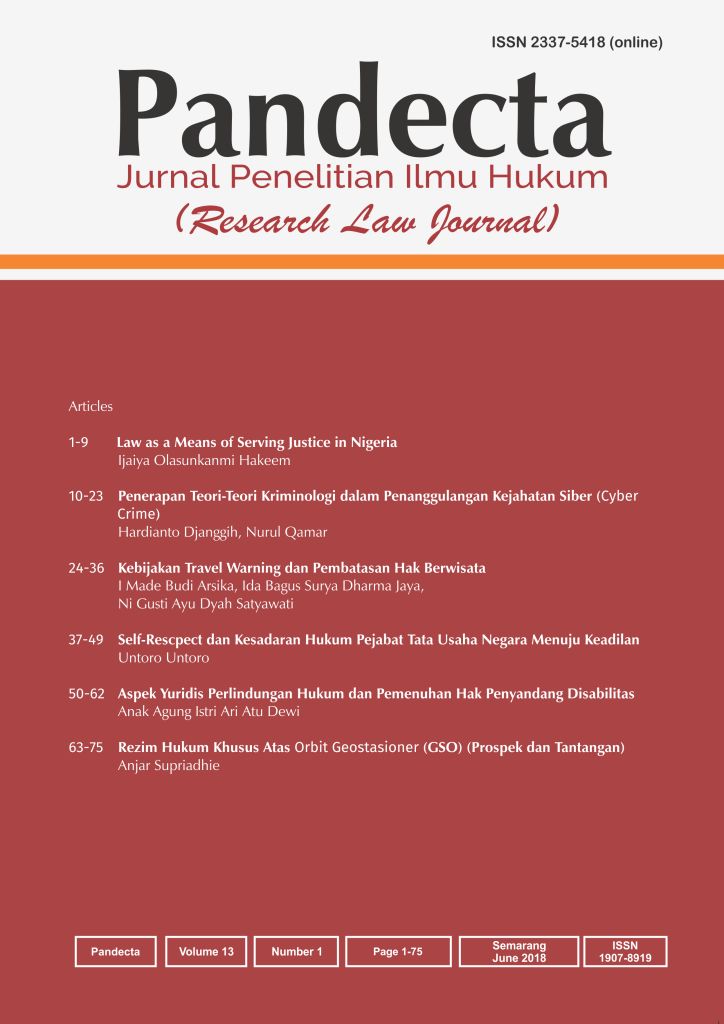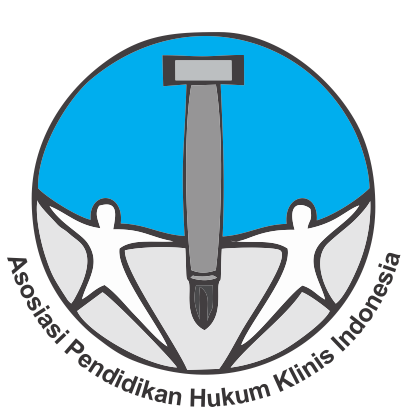Limited Liability Company's Status After Insolvency: Dissolution or Rehabilitation?
(1) Association of Civil Procedure Law Lecturers
(2) Faculty of Law, Universitas Airlangga
Abstract
Keywords
Full Text:
PDFReferences
Arfian, Ilham. “Upaya Rehabilitasi Debitor Perseroan Terbatas yang Telah Dinyatakan Pailit oleh Putusan Pengadilan”, Thesis, Universitas Airlangga, 2018.
Ashiddiqy, Jimly. “Pembubaran Perseroan Terbatas Karena Harta Perseroan yang Telah Dinyatakan Pailit Berada dalam Keadaan Insolvensi”, Skripsi, Universitas Airlangga, 2023.
Baiden, John E. “The 5 C’s of Credit in the Lending Industry,” SSRN, 2011. https://dx.doi.org/10.2139/ssrn.1872804
Bains, Jat and Macfarlanes LLP. “International Comparative Legal Guides: Restructuring and Insolvency 17th Edition,” 2023.
Haniaden, Norna and Mas Anienda Tien Fitriyah. “Akibat Hukum Debitor yang Tidak Menempuh Upaya Hukum Rehabilitasi Setelah Kepailitan Berakhir,” Justitia: Jurnal Ilmu Hukum dan Humaniora Vol. 9, Num. 2, 2022.
Haryantho, B., M. Hadi Shubhan, & M. M. Zaidun, “The Principle of Solvency as Consideration for Judge in Solving Bankruptcy Case in Indonesia,” Journal of Law, Policy and Globalization 96, 20-25. 2020.
Hoff, Jerry. Indonesia Insolvency Law, Jakarta: Tatanusa, 1999, in: M. Hadi Shubhan, Hukum Kepailitan: Prinsip, Norma, dan Praktik di Peradilan, Jakarta: Sinar Grafika, 2009.
Indonesian Legal Research. https://unimelb.libguides.com/c.php?g=930183&p=6721974#:~:text=Indonesia%20has%20a%20civil%20law,Code%20and%20Indonesian%20Criminal%20Code (accessed September 4, 2023).
Jackson, Tim. “Governance for Prosperity,” Revue de Philosophie Économique Vol. 11, 2010.
Lie, Gunardi. “A Negative Pledge as an Alternative Solution to Achieve the Pari Passu Pro Rata Parte Principle,” International Journal of Sustainable Development & Planning, Vol. 18 Issue 1, Jan 2023.
Lokman, Norziana, Nor Faizal Mohammed, Nor Azida Mohamed, and Julizaerma Mohammad Khudzari, “Profiling Winding up Companies and Reason for Not Rescuing Their Business,” Journal of Administrative Science Vol. 18 Issue 2, 2021.
Manan, Bagir. “Kata Sambutan Ketua Mahkamah Agung RI,” 2002, in: Ricardo Simanjuntak. Undang-Undang Kepailitan dan PKPU Indonesia: Teori dan Praktik, Jakarta: Kontan Publishing, 2023.
Nurwahjuni, as stated in Teknik Pembuatan Akta III class in Law Faculty of Universitas Airlangga, September 7, 2023.
Pramudya, Ardhita. “Penormaan Prinsip Debt Forgiveness Dalam Undang-Undang Nomor 37 Tahun 2004 di Indonesia”, Thesis, Universitas Airlangga, 2017.
Rodden, Paul B. and James E. Carpenter, “Corporate Insolvency-Liquidation or Rehabilitaion,” U. Colo. L. Rev. 36, 1963.
Saifullah, Aries. “Dampak Pandemi Covid-19 dalam Rangka Pengajuan Permohonan Pailit (Studi Kasus PT. Cowel Development),” Juris-Diction Vol. 5, No.6, November 2022.
Salampessy, M. Yahdi. “Book Review The Leiden Legacy: Concepts of Law in Indonesia,” Indonesia Law Review Vol. 4 No. 3, 2014.
Santoso, Wimboh, Anika Fiskal, and Aria Suyudi. “Trends and Developments in Insolvency Systems and Risk Management: The Experience of Indonesia,” Credit Risk and Credit Access in Asia OECD, 2006.
Shubhan, M. Hadi. Hukum Kepailitan: Prinsip, Norma, dan Praktik di Peradilan, Jakarta: Sinar Grafika, 2009.
Shubhan, ———. “Legal Protection of Solvent Companies from Bankruptcy Abuse in Indonesian Legal System”, Academic Journal of Interdisciplinary Studies Vol. 9, Number 2, March 2020.
Simamora, Y. Sogar. Hukum Kontrak: Prinsip-Prinsip Hukum Kontrak Pengadaan Barang dan Jasa Pemerintah di Indonesia, LaksBang PRESSindo, September 2017.
Simanjuntak, Ricardo. Undang-Undang Kepailitan dan PKPU Indonesia: Teori dan Praktik, Jakarta: Kontan Publishing, 2023.
Song, Inwon. “Collateral in Loan Classification and Provisioning,” IMF Working Paper, July 2022. https://papers.ssrn.com/sol3/papers.cfm?abstract_id=879878#
Steele, Stacey. “The New Law on Bankruptcy in Indonesia: Towards a Modern Corporate Bankruptcy Regime,” Melbourne University Law Review Vol. 23 Number 1, 1999.
Usanti, Trisadini P., and Abd. Shomad. Hukum Perbankan, Jakarta: Kencana, 2017.
Usanti, Trisadini P. and Leonora Bakarbessy. Buku Referensi Hukum Perbankan: Hukum Jaminan, Surabaya: Revka Petra Media, September 2014.
Refbacks
- There are currently no refbacks.


